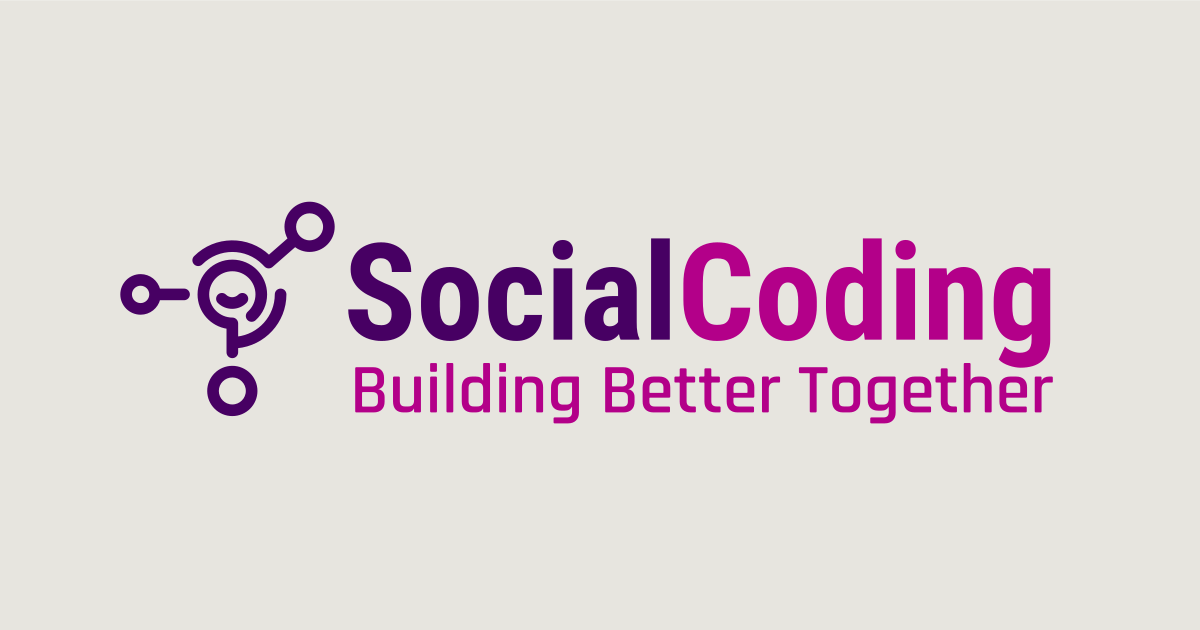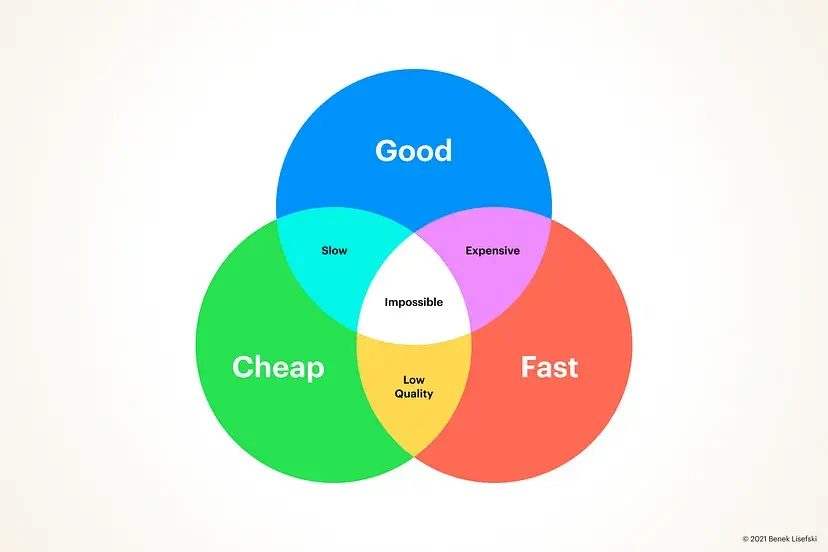Someone starts a new #FOSS project as a hobby activity.
-
abekongereplied to smallcircles (Humanity Now 🕊) last edited by
@smallcircles good analogy. What if you are the only one that can handle that axe and supply wood to your neighborhood. Maybe there is a wood shop where they can buy it, but the shop clear-cut old
growth forest and are expensive and abusive.Then you start cutting pieces that are too big for your neighbors ovens? You neighbors complain - but you insist on doing it your way. Now you neighbors call you BDFL.
Another scenario - you form a cutting group that the neighbors can join , the neighbors who can’t handle the axe join the cutting group - helps carrying the wood and make tea for you. The group decides to cut pieces that fits everyone’s ovens. You actually work less now.

-
smallcircles (Humanity Now 🕊)replied to Alexandre Dulaunoy last edited by
Indeed.
I intent to maybe write something about insights I gleaned [1] from this thread, on the #SocialCoding movement's forum.
This is a #DoOcracy too, where in heading I gave it the simplest possible definition: "Pick up any task, and steer it to completion".

Discuss Social Coding
Build better together and create solutions that people love

Discuss Social Coding (discuss.coding.social)
[1] See: https://social.coop/@smallcircles/113508224930993093
-
Billy Smithreplied to smallcircles (Humanity Now 🕊) last edited by
This was a pattern that we found taking place at our local hackspace:

Geeks, MOPs, and sociopaths in subculture evolution | Meaningness
How muggles and sociopaths invade and undermine creative subcultures; and how to stop them.
Meaningness (meaningness.com)
It's the sense of entitlement that causes the problems.
If people are willing to share the effort, then we can all build things more effectively.
-
Peter Toft Jølvingreplied to smallcircles (Humanity Now 🕊) last edited by
@smallcircles there's a dimension about money and one about power somewhere in there.
As soon as you take money, expectations change to whatever purpose you took the money for. Probably not just "me having a good time".
And power: if you "control" the social media experience of many people that can't easily change provider, that changes things, where both "control" and "easily" are sliding scales. -
smallcircles (Humanity Now 🕊)replied to The Nexus of Privacy last edited by
@thenexusofprivacy Yes! I agree with these points.
And yet there's too much leeway or wriggle room in the definition of BDFL, and that in practice BDFL is more of a vaguely defined social-cultural stereotype to label people with. Rather than something that is well understood and can be properly dealt with.
Somewhere along the lifecycle of a #FOSS project the social dynamics change, and maintainers should cope with that.
Maybe I'll write out some thoughts. Had an idea: https://social.coop/@smallcircles/113508224930993093
-
smallcircles (Humanity Now 🕊)replied to m0xEE last edited by
Not so much a common term but a common model that people use in practice for their #FOSS project. Without realizing it often, they get into this #BDFL "zone" and then have to deal with the consequences.
There's a lifecycle for FOSS projects, that encompasses more than coding and CI.
At Social Coding movement I defined a term for this: The Free Software Development Lifecycle (FSDL) that takes this explicitly into account.

Social Coding FSDL
Free Software Development Lifecycle for inclusive culture, healthy ecosystems and open technology.

Discuss Social Coding (discuss.coding.social)
-
I think nobody (except my daugthers) is entitled to my work.
Not even managers at work can force me to do something I don't want to do, so much that "It cannot be done" and "I don't know how to do it" and "give me a five years and a team of five very skilled engineers, and I'll do it" are well known show-stopper at work.
When I share my high-skilled work, I set up whatever license I see fit (sometime debating with #OSI board gatekeepers, cause I like #copylefts they hate) and usually set an explicit POLITICS.txt to explicitly explain the socio-technical goals of the project.
Usually it does NOT cover governance because forks are welcome (within the rules of the license, obviously)
-
akdbreplied to smallcircles (Humanity Now 🕊) last edited by
@smallcircles I think it's justified because, well, the developer is benevolent for sharing their work, dictator because they are making all the decisions, and for life because presumably they want to keep the project forever. For me, maybe because this is the first time seeing "BDFL", it doesn't have any negative, insulting connotations to it. :). I'm so sorry that 'BDFL' criticism about projects are upsetting people. It can't be easy seeing your brain child fall.
-
smallcircles (Humanity Now 🕊)replied to abekonge last edited by [email protected]
@abekonge yes, it gets interesting pretty quick, right?

> What if you are the only one that can handle that axe and supply wood to your neighborhood.
Then you can take it upon yourself to do that for them. You willingly accept responsibility for it, and thereby you make a commitment to the community to do this work.. under reasonable circumstances.
It is clear, there's common understanding, and matching expectations.
I had a thought for a best-practice:
-
smallcircles (Humanity Now 🕊)replied to Guest last edited by
Oh, I was not aware of an existing practice around POLITICS.txt .. is there one, and a resource to share?
I just thought of something similar at: https://social.coop/@smallcircles/113508224930993093
-
smallcircles (Humanity Now 🕊)replied to smallcircles (Humanity Now 🕊) last edited by
I am sorry people. There are too many replies for me to respond to them all. Please check other branches of the discussion as your question may already be addressed there.
-
Nemoreplied to smallcircles (Humanity Now 🕊) last edited by
@smallcircles
I think the tension is that you built a public project, invited the public to partake, but somehow never meant the public to participate meaningfully (including governance).I think that if you have a hobby project, it's fine. But if you want to *build* an open source project with no thought about governance, you're doing it wrong.
Exception: you *really* want it to grow and approach hobbies like work. Then BDFL can work for a while.
@mir -
smallcircles (Humanity Now 🕊)replied to Billy Smith last edited by
@BillySmith @laxla Thank you!
There's a lotta info around. I'm seeking best-practices to include in something of a pattern library to pick'n choose from.
Inspired by this whole discussion I just formulated one myself:
> "Expected behavior in the #CodeOfConduct of a #FOSS project should be aligned with a #StatementOfCommitment by those having ownership of the project."
I may bring that to a post at #SocialCoding movement https://discuss.coding.social
See also: https://social.coop/@smallcircles/113508224930993093
-
Dawn Ahukannareplied to smallcircles (Humanity Now 🕊) last edited by
@smallcircles @jenniferplusplus
Someone who chooses to handmake arts & crafts (good & cheap) is not called BDFL because they can’t physically & financially make quantity to meet “unpaid” demand & expectations.
This is a “supply & demand” economic & power dynamics problem masquerading as a software technology “commons” problem.Good, fast, cheap ven diagrams(truth table)
- Good+fast = expensive
- Good+cheap = slow
- Cheap and fast = low quality
- Good + fast + cheap = impossible (expectations)
-
smallcircles (Humanity Now 🕊)replied to Peter Toft Jølving last edited by
@joelving sure. And I understand and even agree to most of the arguments made in this entire thread.
At some point frictions are 100% certain to emerge, and also - in majority of cases - not dealt with in an optimal way (not say, often handled badly).
We need good/best-practices for mitigating risk of unaligned expectations and lay the basis for a healthy and well-understood governance model (if where that model's theme is "Hobby Project").
Here's my wood chop analogy: https://social.coop/@smallcircles/113508151463049043
-
smallcircles (Humanity Now 🕊)replied to unexpectedteapot last edited by
Yes, there may be a tipping point where that statement is perfectly valid and justified. But when that happens is not clearly defined. There is a gradual shift in the social dynamics in the course of the project's lifecycle.
(I use the notion of a Free Software Development Lifecycle or #FSDL for this, that can be explicitly reckoned with in the dev process)
See my analogy and follow-up best-practice idea to help mitigate the issue: https://social.coop/@smallcircles/113508151463049043
-
smallcircles (Humanity Now 🕊)replied to Laxystem last edited by
The crucial word in your reply is "imo". Everyone's "in my opinion" taken together is chaos, goes all over the place.
To lay a good basis for "ethical judgment" the expectations must be set correctly by all participants.
In this analogy toot I ramp up to one idea to help do that: https://social.coop/@smallcircles/113508151463049043
-
Billy Smithreplied to smallcircles (Humanity Now 🕊) last edited by
I've found that the Servant Leadership pattern works best for me, but it has to be balanced with making sure that other people don't take the piss.

-
smallcircles (Humanity Now 🕊)replied to akdb last edited by
@akdb yes, burnout is a common theme for maintainers of popular FOSS projects, unfortunately. So many more aspects than just "the fun of coding" start to play a role as a project gains traction and popularity. For many project that also happens spontaneously, and only much later there is a realization that "things are getting serious now". And then a hobby turns into full-time volunteering and dealing with people who feel various levels of entitlement to be heard or see their contributions added
-
smallcircles (Humanity Now 🕊)replied to Nemo last edited by
Indeed. I define a #FSDL as the process where you take things explicitly into account. See e.g https://social.coop/@smallcircles/113508307986680735
